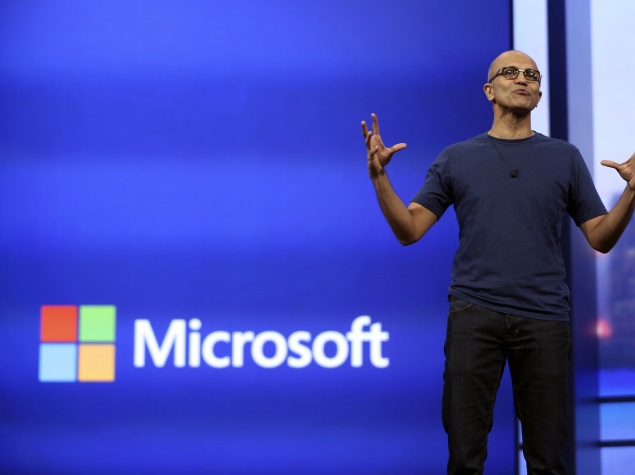- Home
- Internet
- Internet News
- Microsoft Says Its Cybercrime Bust Freed 4.7 Million Infected PCs
Microsoft Says Its Cybercrime Bust Freed 4.7 Million Infected PCs

The world's largest software maker has also identified at least another 4.7 million infected machines, though many are likely still controlled by cyber fraudsters, Microsoft's cybercrime-fighting Digital Crimes Unit said on Thursday.
India, followed by Pakistan, Egypt, Brazil, Algeria and Mexico have the largest number of infected machines, in the first high-profile case involving malware developed outside Eastern Europe.
Richard Domingues Boscovich, assistant general counsel of the unit, said Microsoft would quickly provide government authorities and Internet service providers around the world with the IP addresses of infected machines so they can help users remove the viruses.
"Those victims are currently not aware they are infected," Boscovich said in an interview.
(Also See: Microsoft CEO Nadella Tips Wide Changes in Memo; Commits to Xbox Development)
The operation is the most successful of the 10 launched to date by Microsoft's Digital Crimes Unit, based on the number of infected machines identified, Boscovich said.
Microsoft located the compromised PCs by intercepting traffic headed to servers at Reno, Nevada-based Vitalwerks Internet Solutions, which the software maker said criminals used to communicate with compromised PCs through free accounts on its No-IP.com services.
Vitalwerks criticized the way Microsoft handled the operation, saying some 1.8 million of its users lost service for several days. The Internet services firm said that it would have been glad to help Microsoft, without interrupting service to legitimate users.
Microsoft has apologized, blaming "a technical error" for the disruption, saying service to customers has been restored.
The operation, which began on June 30 under a federal court order, targeted malicious software known as Bladabindi and Jenxcus, which Microsoft said work in similar ways and were written and distributed by developers in Kuwait and Algeria.
© Thomson Reuters 2014
Catch the latest from the Consumer Electronics Show on Gadgets 360, at our CES 2026 hub.
Related Stories
- Samsung Galaxy Unpacked 2025
- ChatGPT
- Redmi Note 14 Pro+
- iPhone 16
- Apple Vision Pro
- Oneplus 12
- OnePlus Nord CE 3 Lite 5G
- iPhone 13
- Xiaomi 14 Pro
- Oppo Find N3
- Tecno Spark Go (2023)
- Realme V30
- Best Phones Under 25000
- Samsung Galaxy S24 Series
- Cryptocurrency
- iQoo 12
- Samsung Galaxy S24 Ultra
- Giottus
- Samsung Galaxy Z Flip 5
- Apple 'Scary Fast'
- Housefull 5
- GoPro Hero 12 Black Review
- Invincible Season 2
- JioGlass
- HD Ready TV
- Laptop Under 50000
- Smartwatch Under 10000
- Latest Mobile Phones
- Compare Phones
- Red Magic 11 Air
- Honor Magic 8 RSR Porsche Design
- Honor Magic 8 Pro Air
- Infinix Note Edge
- Lava Blaze Duo 3
- Tecno Spark Go 3
- iQOO Z11 Turbo
- OPPO A6c
- Lenovo Yoga Slim 7x (2025)
- Lenovo Yoga Slim 7a
- Lenovo Idea Tab Plus
- Realme Pad 3
- Moto Watch
- Garmin Quatix 8 Pro
- Haier H5E Series
- Acerpure Nitro Z Series 100-inch QLED TV
- Asus ROG Ally
- Nintendo Switch Lite
- Haier 1.6 Ton 5 Star Inverter Split AC (HSU19G-MZAID5BN-INV)
- Haier 1.6 Ton 5 Star Inverter Split AC (HSU19G-MZAIM5BN-INV)







![[Sponsored] Haier C90 OLED TV | Dolby Vision IQ, 144Hz OLED and Google TV in Action](https://www.gadgets360.com/static/mobile/images/spacer.png)









